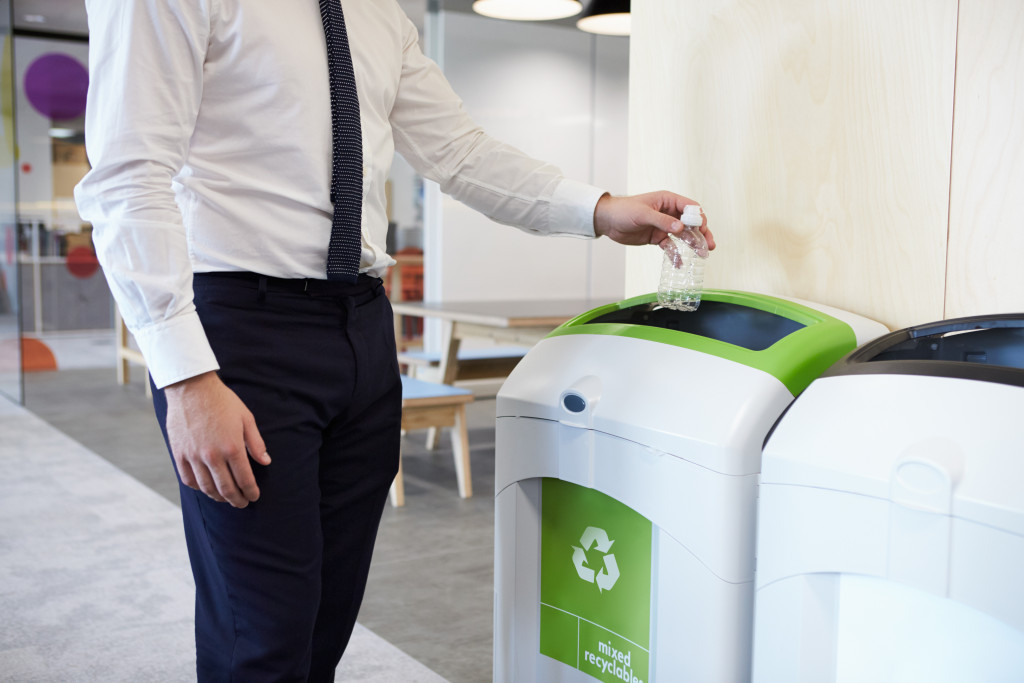The world of business has come a long way in terms of progress and development. But on the other side of the spectrum, we’ve witnessed how different companies and small and medium enterprises (SMEs) across various industries have harmed the planet Earth.
For this reason, sustainability in business has become such a buzzword in recent years. The idea is to sustain a business for the long term while reducing its environmental impact. Many big companies and even SMEs have started setting sustainability practices in place.
One effective sustainability strategy is to invest in digital tools and green technologies. Not only do they help your business save the environment, but they also significantly improve your business processes. Ultimately, they help sustain your business for the long term.
That said, here are green technologies and digital tools to adopt for your business:
1. Recycling Technologies and Waste Management Tools
First off, you may have heard of the 3Rs—reduce, reuse, and recycle. The idea is to decrease wastes, repurpose used materials, and recycle waste products in your business. Not only will these practices help preserve the environmental resources and reduce waste products, but they will also help your business save up. Hence, consider investing in recycling machinery pieces and utilizing waste management tools for your business. From there, work towards earning the ISO 14001 certification for environmental management system as part of your business sustainability.
2. Technologies for Renewable Energy Sources
There has been a strong push for renewable energy sources in recent years. Governments in some parts of the world even offer tax incentives for businesses utilizing alternative energy sources. The same is true for homeowners installing solar panels for their residential properties. As early as now, consider investing in tools and technologies for renewable energy. Some examples are the photovoltaic collector for solar energy, wave energy management plant for electricity, and waste-to-energy resource (generating energy from garbage).
3. Energy-efficient Tools and Equipment
There’s no denying how many businesses from various industries have so much energy consumption. They deplete our environmental resources and contribute much to carbon gas emissions. As such, there is a need to push for energy conservation. One way to do so is to invest in energy-efficient tools and technologies. Thanks to modernization and technological advancements, businesses can utilize appliances, electronic devices, and equipment that regulate energy use. With these in place, you’ll be surprised at how your business can save up on your monthly energy bills.
4. Cloud Computing
Cloud computing involves providing various services via the web. It utilizes digital tools and technologies such as databases, servers, and data storage. It allows the sharing of data and information remotely via virtual tools and technologies, as long as the users get connected to the internet. That said, consider taking advantage of cloud computing for your business. That way, you can reduce the environmental impact of property construction and hardware installation. Ultimately, you can save up by incorporating this digital tool into your business.
5. Digital Communication Tools
When it comes to running a business, communication is paramount. Employees need to talk to various stakeholders involved in your business, from customers to colleagues to suppliers. But gone are the days when your employees would send paperwork via fax and mail. Today, they can seamlessly communicate with other stakeholders, whether via chat or email. Hence, consider investing in digital communication tools such as Slack and G Suite. They eliminate physical materials like paper products that can pollute the environment.
6. 3D Printing

Another promising innovation in manufacturing is 3D printing. Also known as additive printing, it is the process of turning digital design into physical objects. The process involves printing different materials and fusing these layers of materials to form the desired object. Keep in mind that 3D printing is more efficient, accurate, and productive as far as manufacturing is concerned. It helps cost-cut the use of materials and reduces waste products. Hence, it’s proven to be environmentally friendly, which is a good business sustainability practice.
At this point, you now know what green technologies and digital tools to invest in for your business. Be sure to consider those recommended above, from recycling technologies and waste management tools to digital communication tools and 3D printing.
Sure, every entrepreneur aspires to grow and sustain their business for the long term. But as a responsible business entity, you also have the responsibility to take care of the environment. As such, consider adopting green technologies and digital tools. Ultimately, doing so can make a world of difference in your business.

